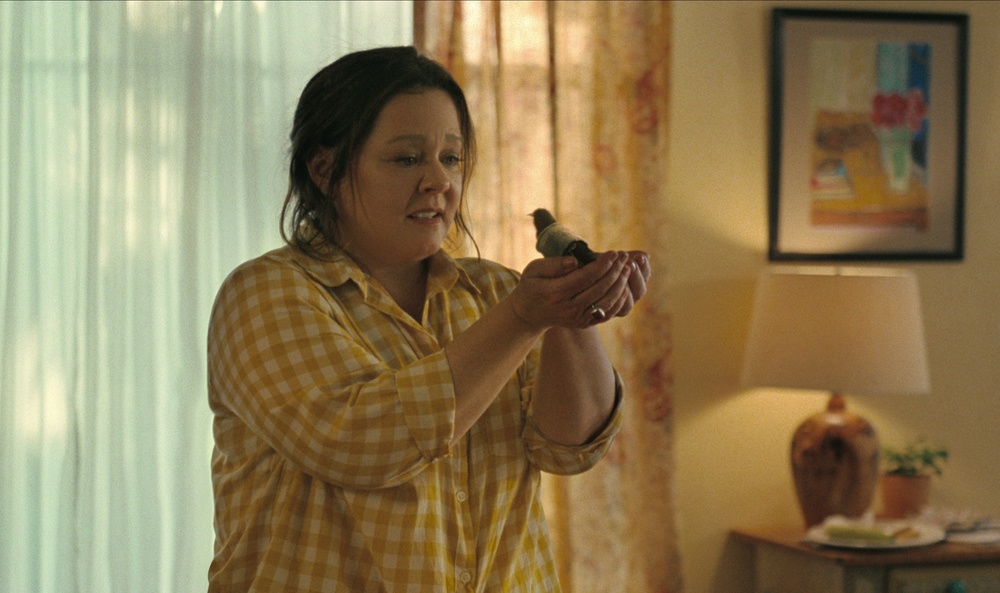The Starling

Melissa McCarthy stars in THE STARLING. (Photo: Netflix)
At first, the title character in The Starling is more of a symbolic sidekick — an innocuous pest who swoops in occasionally to antagonize the protagonist as she processes her grief.
However, while the diminutive bird takes flight, this heartfelt yet manipulative melodrama never gets off the ground.
Tugging too aggressively at the heartstrings, this shallow examination of parental anguish from director Theodore Melfi (Hidden Figures) is only fractionally redeemed by its committed performances.
Several months after the death of their baby, Lilly (Melissa McCarthy) and Jack (Chris O’Dowd) still are unable to cope. She works at a supermarket and tends to her garden, while he’s institutionalized after a mental breakdown.
They see each other once a week at group therapy sessions, but otherwise their relationship is crumbling. Lilly is referred for counseling to Larry (Kevin Kline), who switched gears several years ago and is now a veterinarian.
Aside from the awkwardness that causes when Lilly shows up for her first appointment, Larry eventually becomes a source of comfort while dispensing pearls of wisdom. “Emotions have to find a way out,” he explains. “We can’t stand the idea of something so tragic happening for no reason at all.”
The Starling explores how the individual nature of grief can exacerbate feelings of residual guilt when forced to endure it collectively. As such, it tackles familiar themes including support systems, starting over, and learning to let go.
Melfi and rookie screenwriter Matt Harris dance too delicately around the elephant in the room. Like its characters, the film needs to be more honest and forthcoming in confronting its issues.
While awkwardly sprinkling humor into some tricky emotional territory, the film manages a few powerful character-driven moments (thanks largely to McCarthy) despite rarely offering much fresh insight.
For example, it never really addresses the significance, if any, of Lilly and Jack being older first-time parents — most likely in their 40s — which might have added a unique perspective with some context. Instead, we’re left with a frustrating barrage of sentimentality accompanied by original songs from Brandi Carlile and the Lumineers that you wish wouldn’t have been squandered on such mediocre material.
There’s no predetermined timetable or roadmap along the path to healing. Still, between the forced quirks, the obligatory self-help chestnuts, and the conveniently timed spiritual epiphanies, the film is too calculated to achieve the desired level of catharsis.
Rated PG-13, 103 minutes.